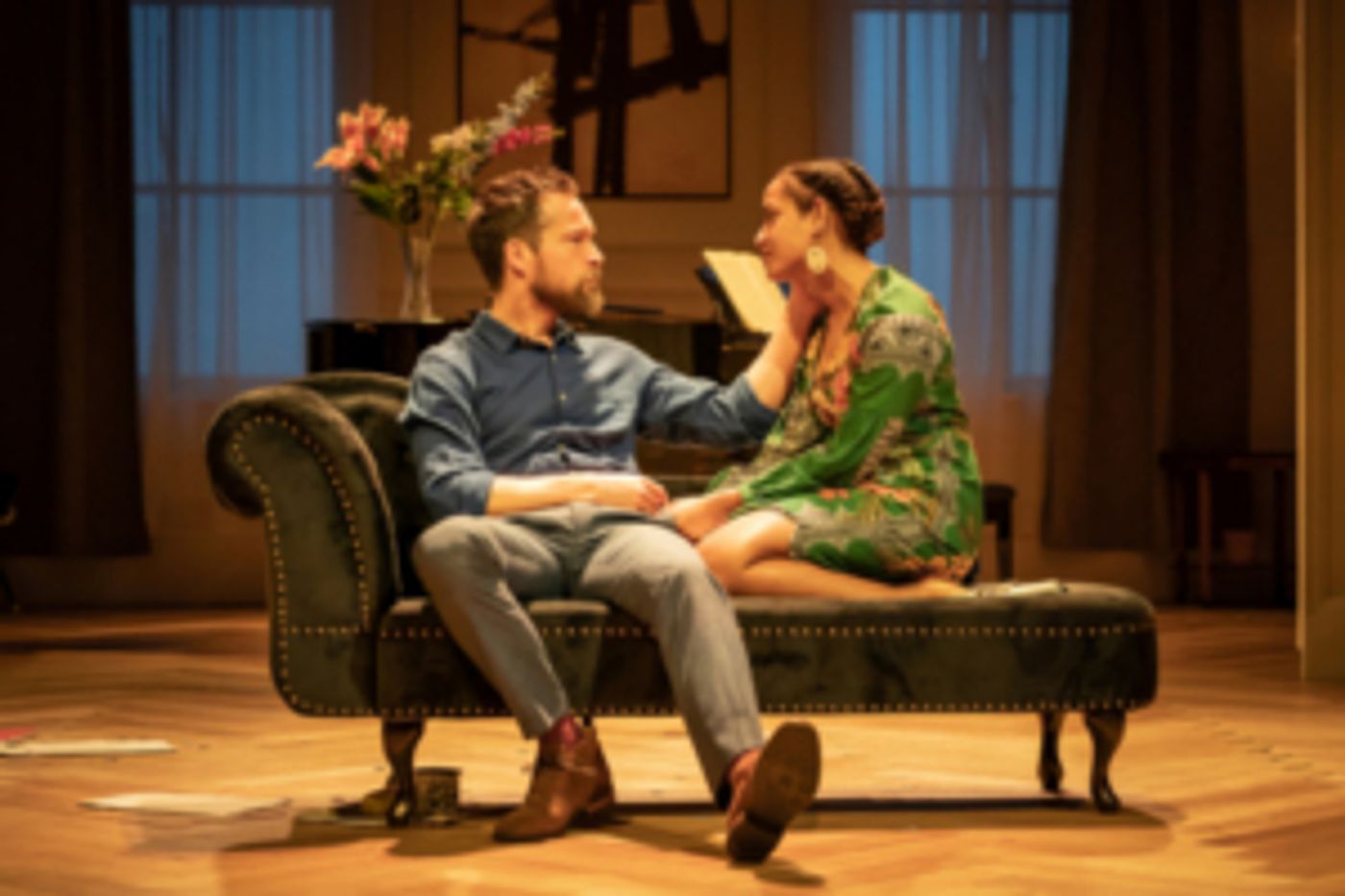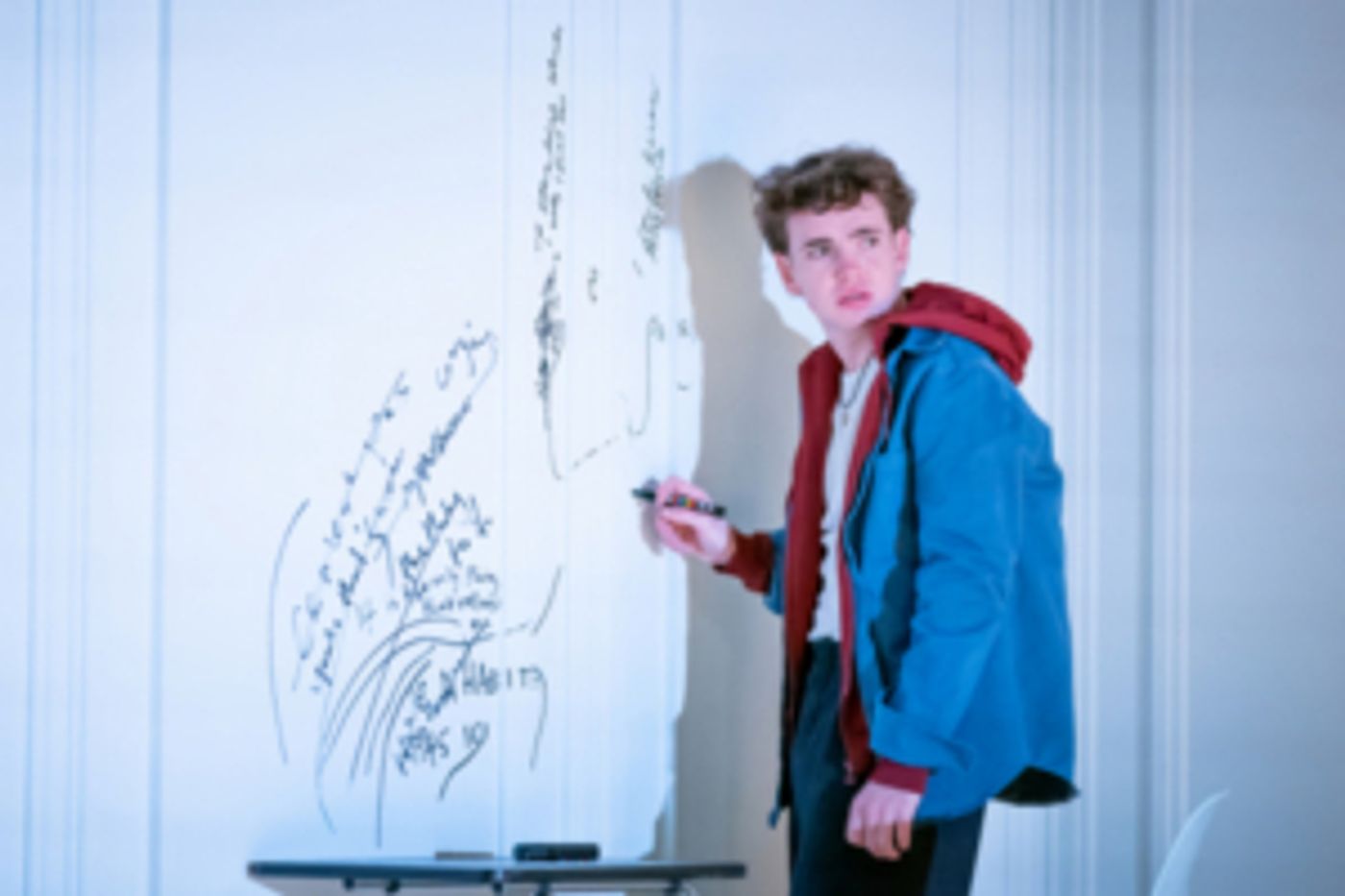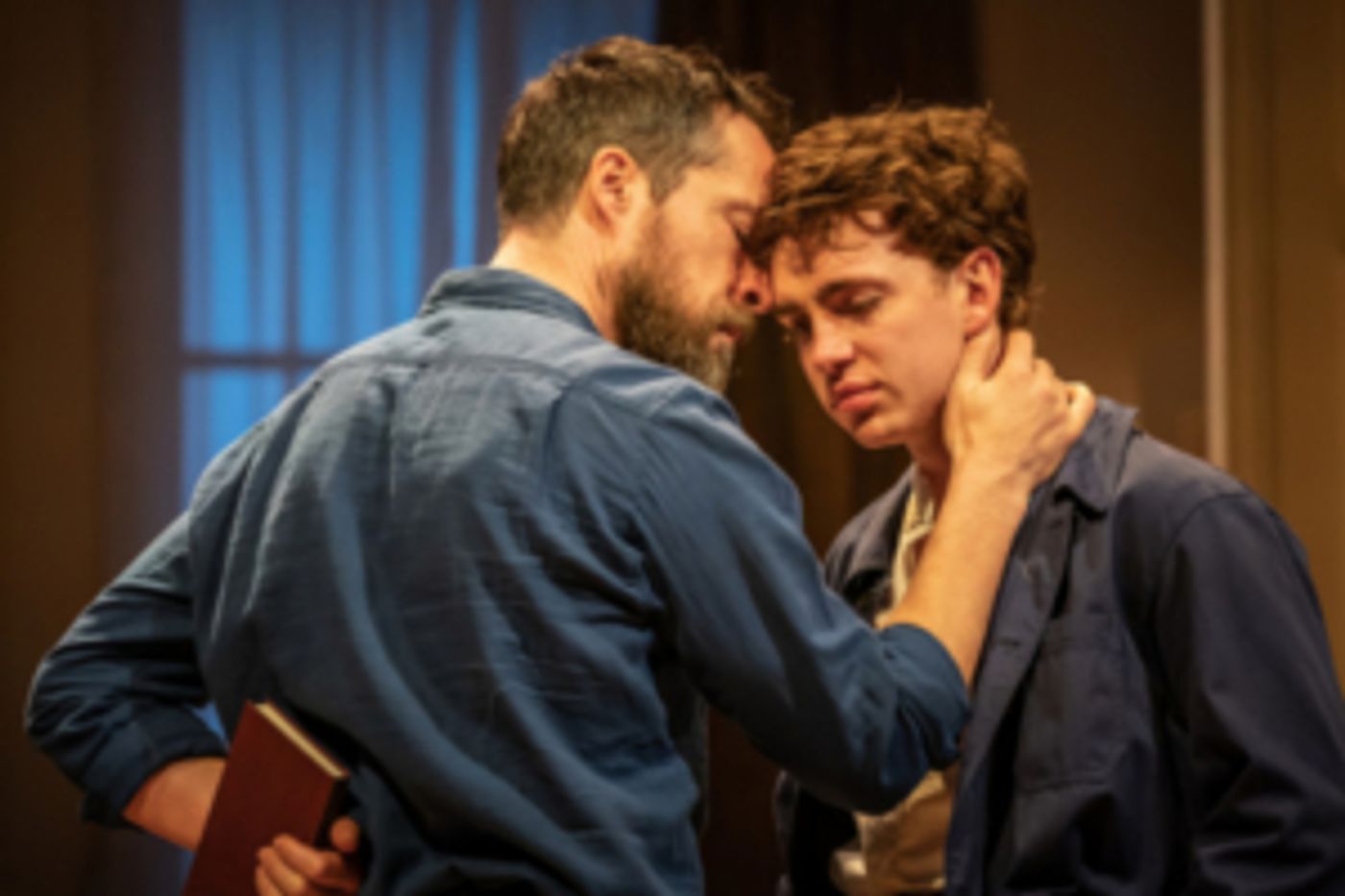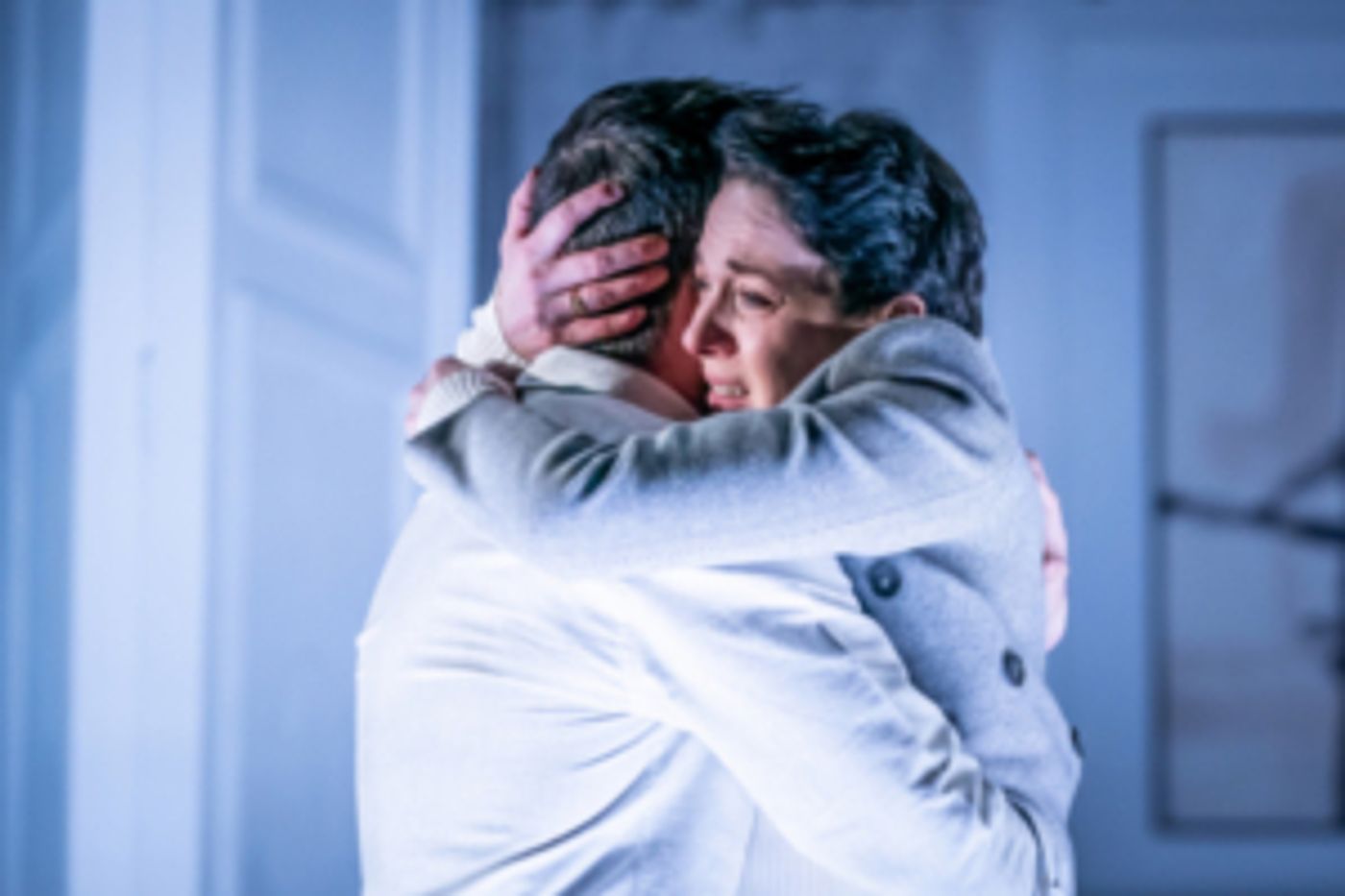Interview: Amaka Okafor Talks THE SON at Duke Of York's Theatre

in The Son
After a stellar run at the Kiln, Florian Zeller's The Son transferred to the West End last month. We caught up with Amaka Okafor to hear about the journey of the show and its harrowing themes.
How would you describe the show?
I would describe it as a family drama, a modern family drama. It's also experimental in its delivery, but such a classic in its look.
It's very domestic, but the way it's done with Michael Longhurst's direction, he thinks outside the box and has people on stage when you're not supposed to see them. There are themes which run through it that he manages to pull apart in ways that aren't so naturalistic.
What is it about?
It's about a 17-year-old boy whose parents [Pierre and Anne] separated a couple of years ago and who's telling everybody that he's not okay. It's an exploration into is he okay, is he saying he's not okay for attention, what's actually going on? That's what it is for me.
When someone says they're not okay, especially with teenagers these days, the language that's out there about mental health is so much more at people's fingertips, so people are able to say "I have anxiety", "I fear big crowds", or "I'm not comfortable using public transport". All of these things are more common now, so you hear it out of young people's mouths a lot. You have to sort of go "Okay, are you seriously experiencing this? Or is it a little hurdle that you need to push through and then you'll be a more well-rounded human being?"
Who do you play?
I play Sofia - she's Pierre's new parter and they have a baby. It's quite prickly, the relationship between Anne and Sofia, and what happened between them all. It doesn't really say what happened in the script, so we sort of had to build a story for ourselves. I feel like she's a very grounded human who's able to look at the situation from a little bit of a distance to be able to see things more clearly.

How did you prepare for the role?
When the audition came through, I remember reading it and just going "Oh, I hate her, I can't find anything redeeming about her". And then I prepared for the audition and sort of fell in love with her as I was doing that.
She's a very difficult character. She's not always one thing - that's what we all are, and that's what I love about her. I thought about my past experiences: my parents separated and I was brought up by my dad and saw him have different partners over the years.
He was always very open to me about his relationships and about his adult life. I felt able to see what it's like to be an adult who had children, had a divorce, and who's starting their romantic life again. I though about some of those ex-girlfriends that he had when I was preparing for Sofia - there was one in particular that she reminded me of, and once I had my feet under the table, so to speak, with the character I brought her closer to me and who I am as a woman and as a person.
How did that compare to, say, how Amanda Abbington built her character Anne?
It's so interesting because when you start on a play everybody comes from a different background and different ways that they were trained, different life experiences as well - which is huge. I didn't go to drama school, so I'm a very instinct-led actor. I'll just go with what I feel and try to figure out the better way and then learn from the more experienced actors in the cast as well. I think Amanda is extremely instinctive as well and I feel like she came at it with a huge amount of life experiences as well.
Actually, I feel like we're quite similar actors, we're both mothers, both extremely kind of emotionally intelligent. I'm amazed at how alike we are, so I'm not sure it was hugely different. I think maybe we have slightly different styles, when you see us on stage, but I think our way in is probably quite similar, I'd imagine. You just go with what you feel and see if that works. And then maybe you need help from the director if it doesn't.
The play explores some really dark themes - do you feel like you have to safeguard yourself as an actor when the material is so heavy?
I am ridiculously open, maybe a bit too open. That's just how I am; I'm very sensitive as well. I've always gone through life going "Oh, I'm sensitive, it's a bad thing, I need to try to stop being so sensitive". But actually, in the last few years I've realised that it's a good thing. It makes me better at my job and it means that when I can feel something I can find out why, and I find it easier to let it go once I've investigated why I'm upset.

in The Son
If a play triggers something inside me that I've experienced in my life, I actually go "Okay, let me look at that" - it helps you look at that thing that happened to you in a slightly different light. It can help you use a bad experience for the better.
I believe this is a really important story that needs to be told. It's my job to tell that story. Also, I've been in therapy for a year for personal reasons, and I find that it's really amazing to be able to talk about things.
Michael [Longhurst], our director, is also amazing. He's created a room that's really safe - everybody feels supported. He'd put on songs and we would dance and not really talk for the first part of every day. It would just be silly, stupid dancing, jumping around, and it made us hot and sweaty, and it made us laugh. It meant that we were able to leave it in the rehearsal room when we finished.
Were there any discussions on how to portray such a delicate story?
We had professionals come in. We had a child psychologist who deals with family breakdown a lot. She came in and spent an afternoon talking to us, about three or four hours. We also had a mediator who deals with people who are divorcing, who told us about what happens to the children in that process, on each side, each parent. We had all sorts of specialist coming to talk to us about the reality of the situation. I always feel it's better to go with the truth - even if the truth is a difficult pill to swallow, it's best to go with that.
What did you think when you read the play for the first time?
"God, this is a brilliant play!" The writing is incredible.
Do you have a favourite moment in the show?
No, actually. I try not to zone in on a particular moment, I think when you draw too much attention to something, it starts to change. You become self-conscious about those moments and they may become less good. The way the play starts, everything has a knock-on effect. If the play starts in a particular way, it affects the rest of it. Everything feels completely different. I just love the whole thing. I just love this play. It's the best job I've ever had. I've never been so happy in a job.

in The Son
Were you expecting to be transferred to the West End?
No, I didn't! I'd never played the West End before, and everyone always goes "It's going to go into town" and it never does! So I always went "I'll believe it when I see it" - when somebody makes me an offer, then I'll believe it!
I also thought that if it was going into town, they'd probably want somebody more famous to play my part. I thought they'd give it to somebody else. I didn't want to hold on to it too tightly because I didn't want to be disappointed, basically.
What would you say to someone who wants to see it?
Please, come! Please, please, come! I would really love to open it up to more young people, people from backgrounds similar to my background. I don't want to say "diverse" because I hate that phrase, but I would love our audiences to represent the city that we live in, the country that we live in. You might walk past the poster in the Underground and think that the show doesn't represent you, but it does. This could happen to a black family, it could happen to an Asian family, this could happen to any family. I'd love for families to come, young people.
Could you give me three adjectives to describe it?
Oh, sh*t... No, that's not one of them! [Laughs] I would say... It's powerful. It is intense, but that's a thing that would put me off going to see something - if someone said something is intense, I'd go "Oh God, I don't want any of that". So, I'd say it's powerful, truthful, and... Rich. It's really rich.
The Son runs at Duke of York's Theatre until 2 November.
Photo credit: Marc Brenner
Powered by
|
Videos
